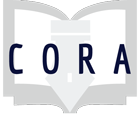Assignment
Thinking critically about knowledge organization
This is part of an introductory first-year class to the university where students are introduced to the library and asked to think critically about how information is organized using the framework of critical cataloging. After watching a short video on the idea of classification and its problems with fixing identity categories, students analyze and categorize selected book from the collection, and then reflect on how knowledge is organized and their choices as authors.
| Attachment | Size |
|---|---|
| 11.75 KB |
- Discuss how communities and identities are celebrated and marginalized in library collections
- Reflect on knowledge organization and how it compares to their own authorial choices
Information Literacy concepts:
Individual or Group:
Ability Level:
This is an introductory English Composition course that is entirely first-year students over the summer session before they begin their first year of college. Students in this class write a "definitional essay" where they define a word used in a community they belong to that others may not know (e.g. an ethnic/cultural identity, a community based on a hobby, any other discourse community). They are also writing about campus services for a public audience of other first year students (including critiques).
As students are working on the definitional essay they discuss authorial choices and identity extensively. Students then watch a general library video, "Queering Classification," which discusses Sandy Berman and Emily Drabinski's queer cataloging and how library classification is not neutral. After watching the video students tour the library space and the librarians lead the students who work individually or in small groups to categorize and assign keywords to a cart of curated materials. After students work independently on the worksheet for ~15 minutes the librarian leads a small group discussion on neutrality and the challenges in organizing knowledge. The session ends with concluding questions and reflection on the choices they make as authors, which communities they are addressing, and how identity shifts. The entire activity is ~40 minutes.
Selecting engaging books is key for this activity! A popular title among students was a graphic novel on cooking (is it cooking, is it comics, etc.) and a book about food justice and African American Activism.

